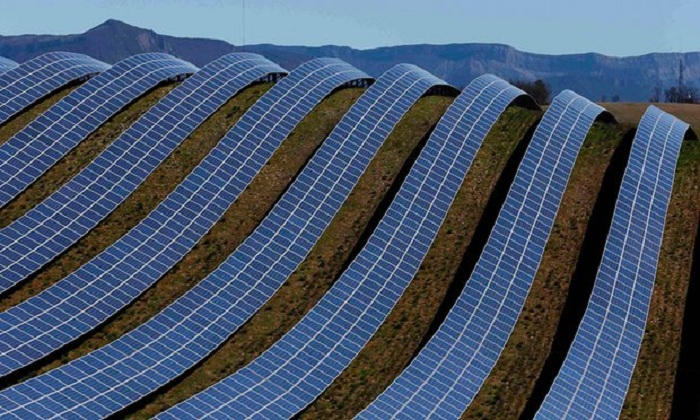European clean tech industry falls into rapid decline

Europe’s once world-beating clean technology industry has fallen into a rapid decline, with investment in low-carbon energy last year plummeting to its lowest level in a decade.
The plunge in European fortunes comes as renewable energy is burgeoning around the world, with China in particular investing heavily.
As recently as 2010, Europe made up 45% of global clean energy investment,according to Bloomberg New Energy Finance (BNEF), which examines the sector. But after peaking at $132bn in 2011, investment in the EU plunged by more than half, to 18% of the global total, or $58bn, in 2015.
Michael Liebreich, chairman of the BNEF board, said the global financial crisis and its aftermath were to blame only in part. “Europe’s failure to respond [to the crisis was a factor and] global investors, scared about the survival of the euro, had plenty of reason to hesitate about putting money into euro-dominated clean energy projects,” he said.
But he also pointed to mistakes made by policymakers in member states, which he said had created a “boom-bust” cycle by initially showing strong support for renewables then rapidly rowing back as they feared the expense of successful subsidies.
Europe’s manufacturers have also suffered in the rapid fall. From being a world leader in solar panel manufacturing in the early and mid 2000s, the EU no longer has any companies in the global top 10. Last year, the Chinese company Goldwind took the crown as the world’s biggest wind turbine maker, leaving European companies in the shade.
Jobs are being lost as a result. According to the International Renewable Energy Agency, employment in solar photovoltaics in Europe fell by more than a third to 165,000 jobs in 2013, the last year for which it has yet collated figures. Jobs in wind energy rose slightly, by more than 5% in 2013, to nearly 320,000 across the bloc, with more than half of these in Germany.
Investment is not uniform across the clean technology sector. Despite the poor showing overall, Europe’s wind generation industry had a bumper year in 2015, with €24.6bn invested. But this is not likely to last.
Oliver Joy, spokesman for the European Wind Energy Association, told the Guardian: “The outlook for 2016 is not as rosy and we’re likely to see a dip in installations this year. Beyond this, the future for onshore wind is not clear as an uncoordinated patchwork of policies across Europe continues to stifle progress, not least in the UK and Spain. We need to see more political appetite at European and national level, which means putting in place a vision for renewables into the next decade.”
Prospects for the struggling EU clean energy industry look poor overall, said analysts. The best hope of a revival is likely to be a return of political commitment to the sector, but that looks unlikely in the short term, even in the wake of the landmark climate change agreement signed in Paris last December.
A major European commission announcement on the future of the bloc’s energy, published last month, was criticised by green groups for focusing on gas, rather than renewables or efficiency. Commission leaders and some member states are thought to take the view that as Europe is struggling with recession, unemployment and immigration, emphasising the security of gas supplies – despite the need to import the fuel expensively from outside the bloc, including from countries such as Russia with which Europe has a troubled relationship – is more reassuring to business.
In a further blow, the looming UK referendum on EU membership is creating uncertainty for investors, while the Tory government has reined back sharply on support for renewables such as onshore wind and solar power, claiming cost reasons.
Liebreich attacked this argument: “The tragedy is that Europe lost its renewable energy mojo just as costs were plummeting to the point where green power is fully competitive without subsidies in more and more parts of the world.”
He pointed to costs of wind energy generation of $0.04 per kilowatt hour in the US, and said this should be possible in the UK, with the right support from government. “[Politicians and opponents of wind] have failed to grasp that one of the reasons why costs are higher in the UK is because of the policy uncertainty they helped to create.”
As the EU has declined, clean energy in China is forging ahead. Last year, according to a new report from the climate change thinktank E3G, the Chinese invested two and a half times as much as the EU in clean tech.
The irony is that investment in the EU has made the Asian clean powerhouse possible, as initial subsidised forays into clean technology have borne fruit in the form of slicker manufacturing processes and vastly reduced costs. On current showings, China is now poised to reap the economic benefits of Europe’s historic investments.
Nick Mabey, chief executive of E3G, said: “Twenty years ago, Europeans were still teaching China how to draft environmental laws. Ten years ago, Europe saw China just as a market for its green exports. Today, China is on the verge of dominating the global clean energy economy. The EU must act decisively to stay in the race.”

